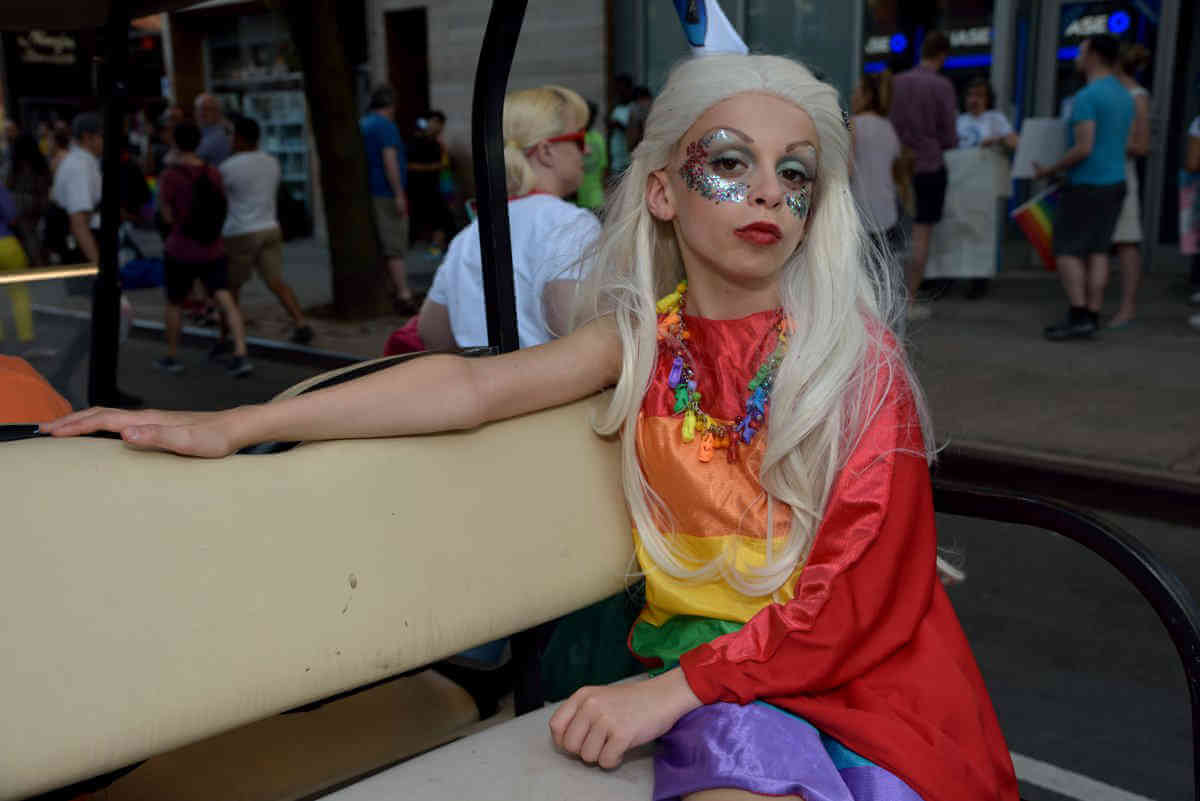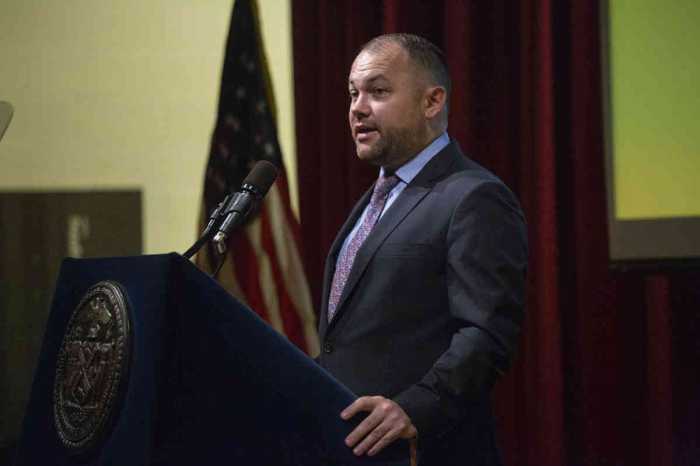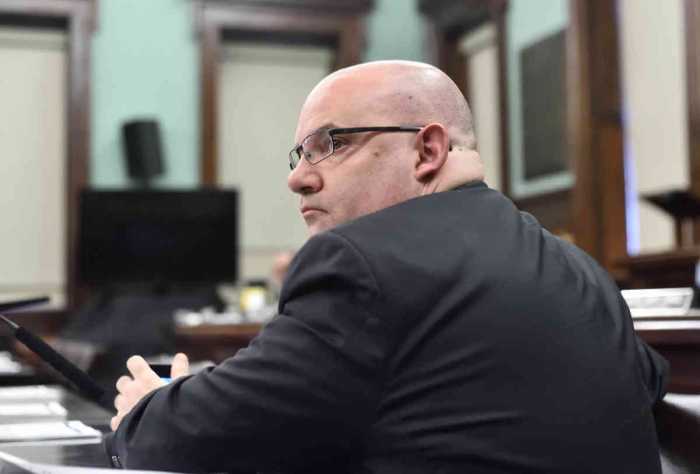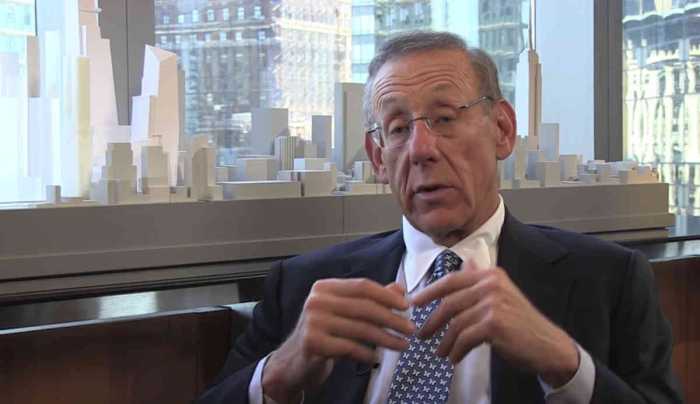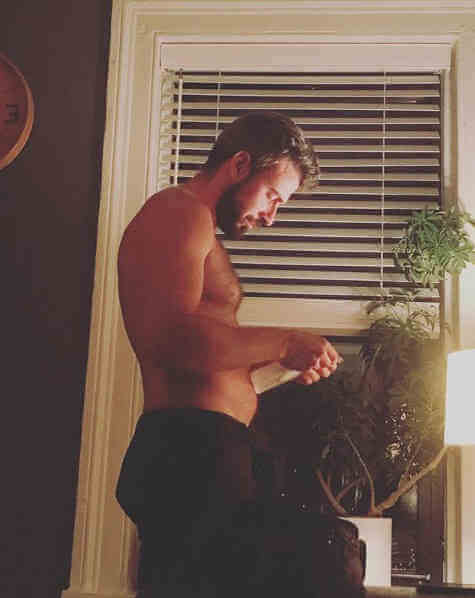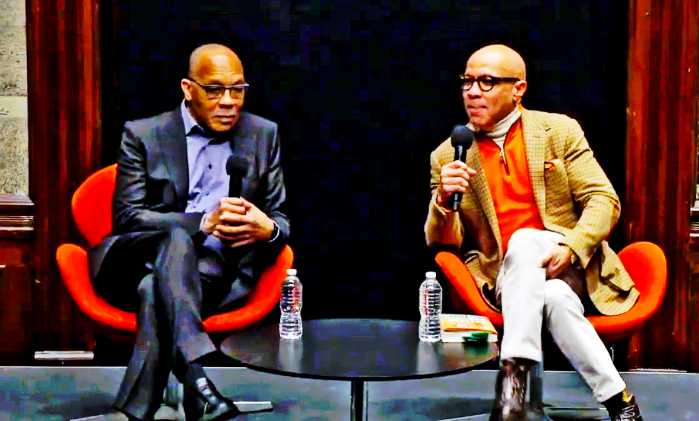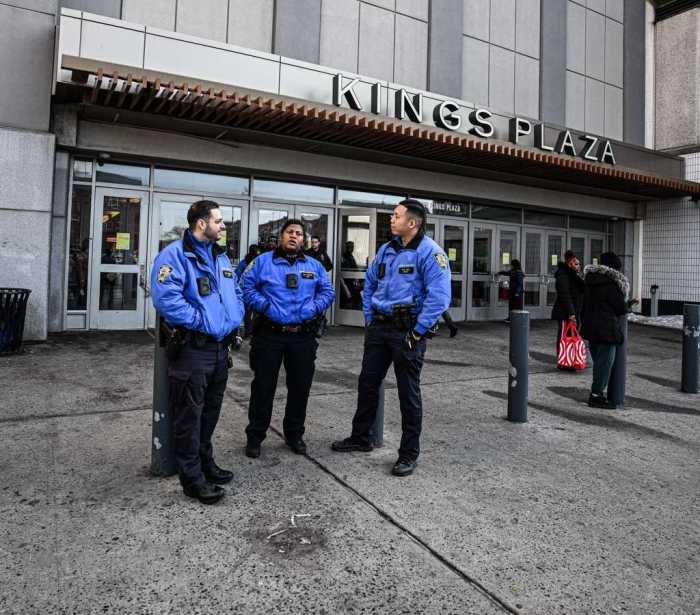It was a Saturday evening love fest in Brooklyn.

In a June 8 twilight parade down Park Slope’s Fifth Avenue that drew thousands and lasted for hours, the crowd — both activists and elected officials marching and spectators lining the sidewalk for the event’s 15-block stretch — emphasized over and over again that love, acceptance, and diversity were the key words defining LGBTQ Pride in the city’s most populous borough.

And if the evening was centered on queer pride, it was also a celebration of pride in the special qualities of Brooklyn and of New York City as whole.

For spectator Rosin Kaplan, who grew up in Park Slope, moved elsewhere, including San Francisco and, most recently for five years, New Orleans, moving back to the Flatbush side of Prospect Park three years ago was a welcome coming home.

“I would say one of the reasons I’m back in New York is that I didn’t want to have any more anxiety about being gay,” Kaplan said. “After so many years of being stressed about it as an adult, it’s really nice to be older and be like really gay in a really gay city. I mean this city is so gay. It’s so relaxing. It’s normal here to be gay.”

Kaplan and her business partner in a T-shirt company, Sasha Rose, who was visiting for 10 days from New Orleans, had spent the afternoon vending their T-shirts at the Pride Festival, and said they were ready to sleep once the parade wrapped up.

“We want to be ready to go to Riis Beach tomorrow and be gay there,” Kaplan said.

Jeremy Aviles, who was visiting from Orlando, Florida, with a friend, also voiced wonder at the exuberance he came upon at Brooklyn Pride.

“It’s amazing, it’s wild for sure, and it’s all about love from what I’m seeing,” he said.

Becca Farsace and Allison Talum are a couple who just moved in together in an apartment around the corner from Fifth Avenue after each lived in a different part of the borough.

“This is our first time coming,” Farsace said of Brooklyn Pride. “We’re new to the neighborhood but not to Brooklyn. I really dig the community here and it feels smaller and not as commercialized.”

Both she and Talum pointed to the large number of families in attendance with their small children.

“One thing that’s great is that Park Slope is a real family sort of neighborhood, and I really appreciate that everybody is bringing their kids out and seeing the community for what it is, a very loving and accepting neighborhood,” Talum said.

City Comptroller Scott Stringer, marching with his wife and two young boys, also pointed to the joys families can find at Brooklyn Pride.

“Since Max and Miles were literally born they’ve been going to Pride in Manhattan, but this is the first time they’ve been out at night at Brooklyn Pride,” the comptroller said. “So it’s learning experience, it’s a teaching moment, but it’s great to march with your family… It’s why we raise kids in the city because they get the education of a lifetime, the way I did. And they’re going to be better for it.

Borough President Eric Adams said the Brooklyn event perfectly captures a half century of LGBTQ traditions that have grown up since the Stonewall riots in 1969.

“It actually says that the spirit of Harvey Milk, who died in San Francisco, continues to cascade here in Brooklyn with a large parade,” Adams said, before boasting, “It proves that Brooklyn is ground zero for Gay Pride.”

Carlos Menchaca, the first out gay member of the City Council elected from Brooklyn, also hailed the spirit of the Park Slope celebration.

“Everyone feels welcome,” he declared, before turning to one of the evening’s political implications — that he and his four gay Council colleagues all face term limits in 2021. Activists several weeks ago announced an effort, dubbed LGBTQ in 2021, to ensure that queer representation on the Council will not vanish as a result of these term limits.

Menchaca was joined in the parade by nearly a dozen of his Council colleagues, including out gay Speaker Corey Johnson from Manhattan and Daniel Dromm from Queens.
Jared Arader, who is president of the borough’s LGBTQ Lambda Independent Democrats, echoed Menchaca’s emphasis on the 2021 elections, saying of his club’s participation in the parade, “This is our opportunity to show Brooklyn’s LGBTQ community that that we are engaged in local politics, we care about local politics. We care about representation, and we have to make sure that the rest of the city know that just because marriage got done, just because GENDA [the Gender Expression Non-Discrimination Act] got done, we’re not done.”
The club, Arader said, has grown during the Trump era surge of activism on the left. As important, he said, Lambda is growing beyond its historic roots in affluent, predominately white neighborhoods like Park Slope and Brooklyn Heights and drawing in increased numbers of transgender members and people of color.
“We’re marching in Park Slope right now because that’s been the traditional heart of Brooklyn’s community but we’re moving out, moving from Park Slope to where we belong,” he said.
Other elected officials marching in the Brooklyn parade spoke to more global political issues, as well. Menchaca repeated his criticism of Mayor Bill de Blasio’s recent broadening of the range of criminal offenses on which he would work with federal Immigration and Customs Enforcement agents. Though Menchaca got blowback from several of his Council colleagues because the incremental offenses included some sex crimes, the councilmember insisted, “It’s about trust, and the one thing you can’t legislate is trust and when you send a signal as the mayor of New York that you’re okay cooperating with ICE for any reason whatsoever then it sends a signal that you’re not important and that’s the wrong message and that you can’t get back.”
Jumaane Williams, a former Brooklyn councilmember who earlier this year won the race to succeed State Attorney General Letitia James as the city’s public advocate, said of his new post, “I think it’s a pretty cool one. I get to be an activist. I get to be an organizer. I get to hold government accountable on behalf of groups as I’ve tried to do for the past 10 years.”
Asked about his travels in recent weeks, not only to Albany but to other upstate cities as well, Williams explained that he is looking to organize unified support statewide for a tenant protection bill that he described as “the best combination of upstate and downstate legislation I’ve seen in a long time.”
Speaking about her new post, James said, “I think given the fierce urgency of now, given the politics of our nation, as we see an increase in hate crimes, as we see an administration that unfortunately is targeting marginalized populations, I am so honored to be the attorney general of the State of New York to show the way for the nation in seeking justice and equality for the nation.”
Turning out for Pride, she said, is a way to send a message to President Donald Trump so “that knows there’s more of us than of them.” Vowing to keep pressure up on the administration in Washington, James said, “Nobody is above the law.”
Adams, the borough president, also took aim at Trump.
“Without a doubt, the energy and spirit that is coming out of Washington, DC, has really made those who are anti-all-groups comfortable in being anti,” he said. “This is a spirit we have not seen in a long time. But we’re not going to allow it to suffocate us, we’re going to continue to breath and keep our belief in diversity.”

